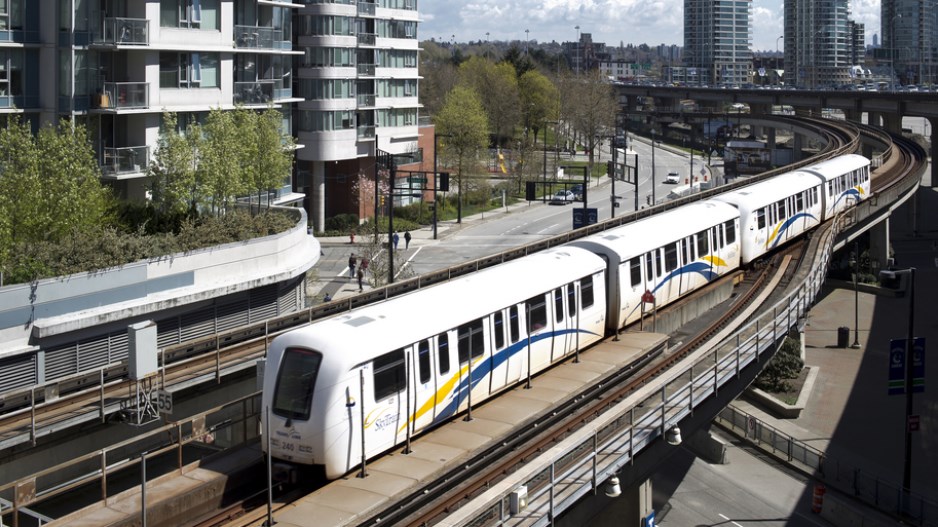The City of Surrey is happy about page 92 of the federal budget.
That’s where the Liberal government suggests immediate investments in transit could include “accelerated design, implementation and construction work for new large-scale projects, such as new light rail transit lines in Greater Vancouver and Ottawa.”
The Liberals have promised to fund “shovel-ready” infrastructure projects this year, but the most capital-intensive transit projects on Metro Vancouver mayors’ wish list — a light rail system for Surrey and a subway along Vancouver’s broadway corridor — still require years of planning before ground is broken on the projects.
"They made it clear they’re going to invest in Surrey’s LRT," said Linda Hepner, Mayor of Surrey. "[The budget] tells you that there is going to be an investment in projects that are absolutely shovel-ready, but let’s not forgo those that are strategically important."
The City of Vancouver also says it’s “optimistic” about the infrastructure funding allocated to Metro Vancouver, which includes $370 million and a commitment to increase the federal government’s share of transit funding to 50%. That’s up from the traditional one-third federal, one-third provincial and one-third municipal funding formula.
Both cities say allowing funding for the design and planning of projects is positive for Surrey's light rail and Vancouver's Broadway subway. But in a press release, the City of Vancouver called the $370 million a "down payment," indicating they will continue to push for more funding, wrote Vancouver mayor's office staffer Kevin Quinlan in an email to Business in Vancouver.
Metro Vancouver mayors have a $7.5 billion transit expansion plan that is currently stalled for want of funds. The federal government has indicated it is interested in investing in the entire 10-year plan, Hepner said, adding that Metro Vancouver mayors will meet with Amarjeet Sohi, the federal Minister of Infrastructure and Communities, this Thursday.
"So we can talk about how to invest this initial money as quickly as possible and so we can sketch out the longer-term federal commitment to the 10-year plan," she said.
Municipalities will now have to meet with the province to discuss the B.C. government's share of funding. The province has indicated it is open to funding one-third of the plan. It's still unclear how the municipalities would fund their share of the plan; a June 2015 referendum asking voters to approve a 0.5% regional sales tax failed.
Infrastructure plan scaled back
In their first budget, the Liberals have scaled back their ambitious infrastructure investment plan, with the bulk of the spending now planned to happen in the five years following 2021.
In their campaign platform, the Liberals had committed to spend $5 billion in infrastructure spending in 2016 and 2017, and $3.4 billion in both 2018 and 2019.

Phase one will focus on immediate spending on public transit, “green” infrastructure like climate change adaptation and wastewater and social infrastructure like daycares and community centres. Out of a total $11.9 billion over five years, $3.4 billion will be directed towards on-reserve First Nations communities.
British Columbia’s total share of public transit funding will be $460 million, compared to $1.4 billion for Ontario, over the next three years.
@jenstden




